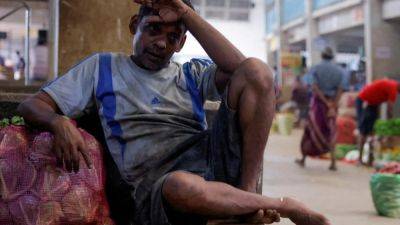Landslides caused by heavy rains kill 5 and bury many others in southern India
NEW DELHI (AP) — Multiple landslides triggered by torrential rains in southern India have killed five people and left many others feared trapped under the debris, the Press Trust of India reported.
The landslides hit hilly villages in Wayanad district of Kerala state Monday after heavy rains battered the state. Rescuers were working to pull out those stuck under mud and debris, but their efforts were hampered due to blocked roads and unstable terrain.
India’s weather department has put Kerala on alert as the state has been lashed by incessant rains. The downpours have disrupted life for many, and authorities closed schools in some parts Monday.
India regularly has severe floods during the monsoon season, which runs between June and September and brings most of South Asia’s annual rainfall. The rains are crucial for rain-fed crops planted during the season but often cause extensive damage.
Scientists say monsoons are becoming more erratic because of climate change and global warming.







